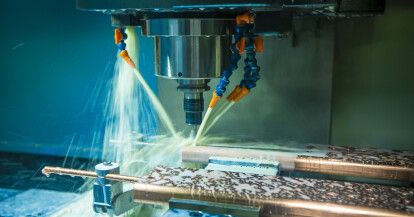Copper in the marine industry. How is copper used in the shipbuilding industry?

Copper in the shipbuilding and broader marine industry has an established, secure position due to its durability, antibacterial and antifouling properties, and high and virtually unlimited ductility.
It is not without reason that in currently manufactured vessels, about 2-3% of their carrying capacity is attributable to Cu - copper, whether pure or as a component of the chosen alloy.
Copper in the marine industry - the three most important advantages of this material
Many people make the assumption that copper is subject to a number of factors in the shipbuilding industry that reduce its durability. However, this is just a pretense, since copper as a component of various alloys has a great many important advantages, among which are worth mentioning:
- Antimicrobial and antimicrobial properties - copper surfaces are a particularly unfavorable environment for bacteria, viruses and other microorganisms to grow and exist.
- Corrosion resistance - copper, especially that contained in cupronickel and arsenic aluminum brass, has a very high resistance to rust formation.
- Ductility - copper is characterized by very simple processing and high ductility, making it much easier to make some items out of it than others.

Copper in the marine industry - the most popular applications
Copper, mainly because of certain mechanical properties, is widely used in the manufacture of ships, boats and yachts. Among other things, it is found in:
- Sheathing - in shipbuilding, copper, or rather its selected alloys, such as manganese bronze, aluminum brass and cupro nickel bronze, have physical and chemical properties suitable for use in the marine industry.
- Propellers - mainly brass and aluminum bronze are used in the production of propellers. Alloys, containing copper, tin and zinc, among others, are primarily characterized by high tensile strength and are used to produce bolts weighing up to 25 tons.
- Structural elements of vessels - copper is also used in engine and boiler rooms in the form of pipes and rigid cables. As much as 30 tons of condenser tubes were aboard the Savannah vessel, and the liner Empress of Britain had just under 6,000 individual tubes made from an alloy of copper, zinc and tin.
- Bus ducting and laminated bus ducting - bus ducting is used primarily in switchboards located mostly on the lower deck of ships. Laminated bus bars are increasingly used, mainly because of their high resistance to water and moisture. Laminated bus bars are sheets of dielectric materials, combined with copper elements into a uniform collective structure.
- Antifouling paints - paints that are in direct contact with seawater throughout their service life should provide an unfavorable environment for various types of microorganisms. A hull submerged underwater is subject to the deposition of a large number of algae and plants on its surface, which - under extreme conditions - can form a layer of up to 150 kg per square meter of the hull. Antifouling paints, which contain copper, effectively protect against this.
- Electrical components - copper is widely used in electric motor components, lighting and a variety of telecommunications systems. The same is true on land with the rest. Copper conducts electricity more efficiently than silver and other generally available materials, and combined with good sealing and tight insulation, it can last for many decades in marine conditions.
Electromobility cannot be overlooked either. Copper is widely used in the e-mobility industry as a primary conductor of electricity, including in battery-packs and yacht chargers. Without it, effective charging of capacious batteries would be very difficult in practice, as would complete current installations.
Take a look at the comprehensive solutions offered by the Electris brand
At Electris, we manufacture customized copper components, including - as one of the few companies in Central and Eastern Europe and Poland - laminated busbars. These components save space, especially in relation to standard power electronic devices connected via wiring, and feature easy installation. In addition, they distribute current in vessels and are an inseparable part of them.




